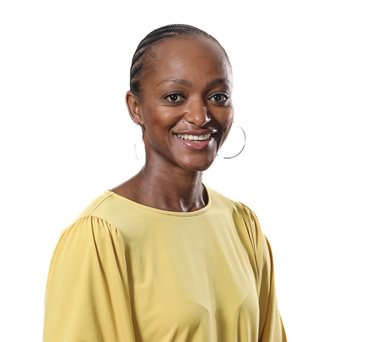
Standard Bank, Unu Health commit to bridging the gap in primary healthcare
Seed-funded by the Standard Bank group, Unu Health has officially launched, giving users access to primary healthcare providers including nurses, doctors, and pharmacy networks by means of a zero-rated mobile app.

Source: Supplied. Phatho Zondi, Unu Health's chief operating officer.
In light of noncommunicable diseases being the number-one driver of mortality in Sub-Saharan Africa by 2030, the platform seeks to also empower users to take control of their wellbeing with access to their health records and medical history – essentially empowering them to manage all their primary-healthcare needs in one place.
Tania Joffe, chief executive officer and principal of Unu Health, says the platform’s vision is to transform the delivery of quality primary healthcare in Africa, making it accessible, affordable and dignified for all.
South Africa’s healthcare remains a two-tiered space, where access to private healthcare, which accounts for 50% of our total expenditure on health, and which supports 17% of our population, remains linked to the ability to pay for private medical scheme membership.
Despite remarkable innovation and progress globally in the health tech domain, which seeks to remove friction and improve access, South Africa’s population with access to private healthcare has moved from 9.6% in 1974 (2.4 million members out of a population of 25 million) to 17% in 2021 (9 million members out of a population of 59.3 million).
Unu Health aims to urgently step into the gap.
Extending life expectancy
“We are developing a hyperconnected patient-centred ecosystem linking healthcare users, health-tech resources as well as traditional in-person health resources, by means of an inclusive platform that is intuitive and easy to use from mobile phones.”
Joffe says that orchestrating a digital-first, data-enabled healthcare platform that delivers quality inclusive primary care for communities in developing economies can help extend life expectancy.
“By changing how people access, pay for and experience medical care, we can have a long-term impact on lives, livelihoods and the continent’s GDP,” she adds.
“Non-communicable diseases (NCDs) have an increasingly long-term impact on the quality of life for those affected, with catastrophic consequences if undiagnosed, diagnosed late or poorly managed. Genetic, physiological, environmental, and behavioural factors underpin these diseases,” says Phatho Zondi, chief operating officer and clinical lead at Unu Health.
“The top four NCDs – cardiovascular, cancers, chronic respiratory disease and diabetes – account for 80% of annual NCD-related deaths and are mostly driven by factors like tobacco use, physical inactivity, the harmful use of alcohol, and unhealthy diets.”
Joffe says that Unu Health is focusing initially on the 5.5 million formally employed population that cannot afford medical aid, by partnering with employers to support access to primary healthcare for their employees.
Improving employee health
“Unu Health integrates HR and medical data to give employers valuable insights into the wellbeing of their people to help improve employee health - with a direct impact on the bottom line as seen by reduced absenteeism, greater productivity, and enhanced staff retention and attraction,” Joffe explains.
Employee data is de-identified and aggregated, so private patient data is not disclosed.
“Owing to the friction involved in accessing primary healthcare, most South Africans initially self-medicate acute symptoms while their chronic conditions go largely undiagnosed. As a result, on any day 15% of the workforce is absent – that’s 2.25 million people who are not at work,” says Joffe.
“We’re looking to change the status quo by removing the friction, as the first provider to offer packaged healthcare solutions on the platform.”
Unu Health is transforming the delivery of quality primary healthcare in Africa with a holistic platform that makes it accessible, affordable and dignified for all.